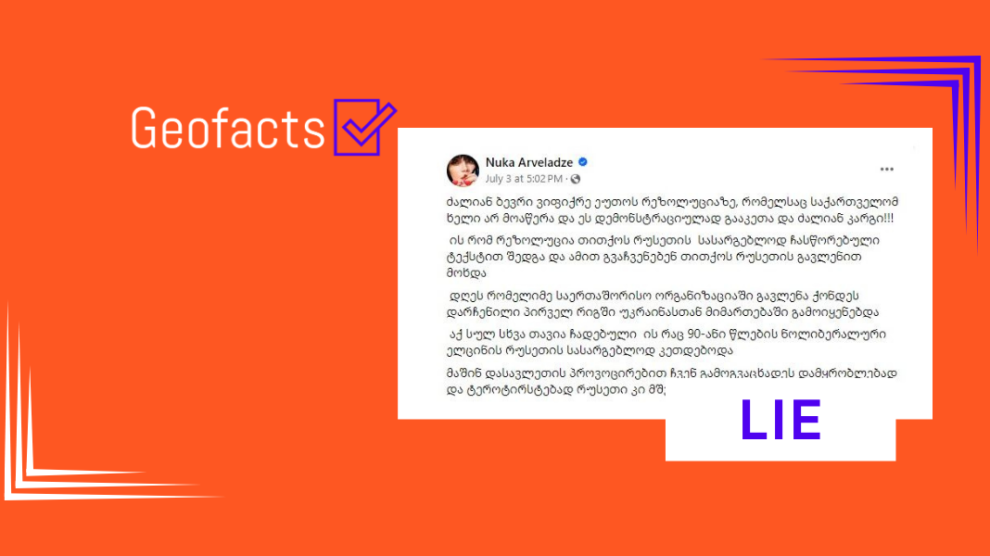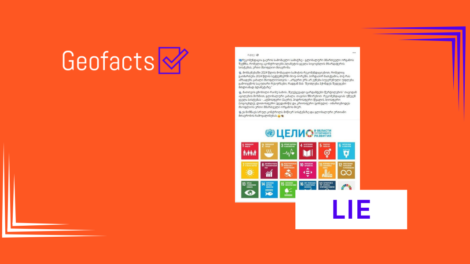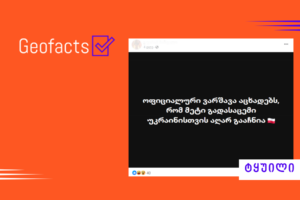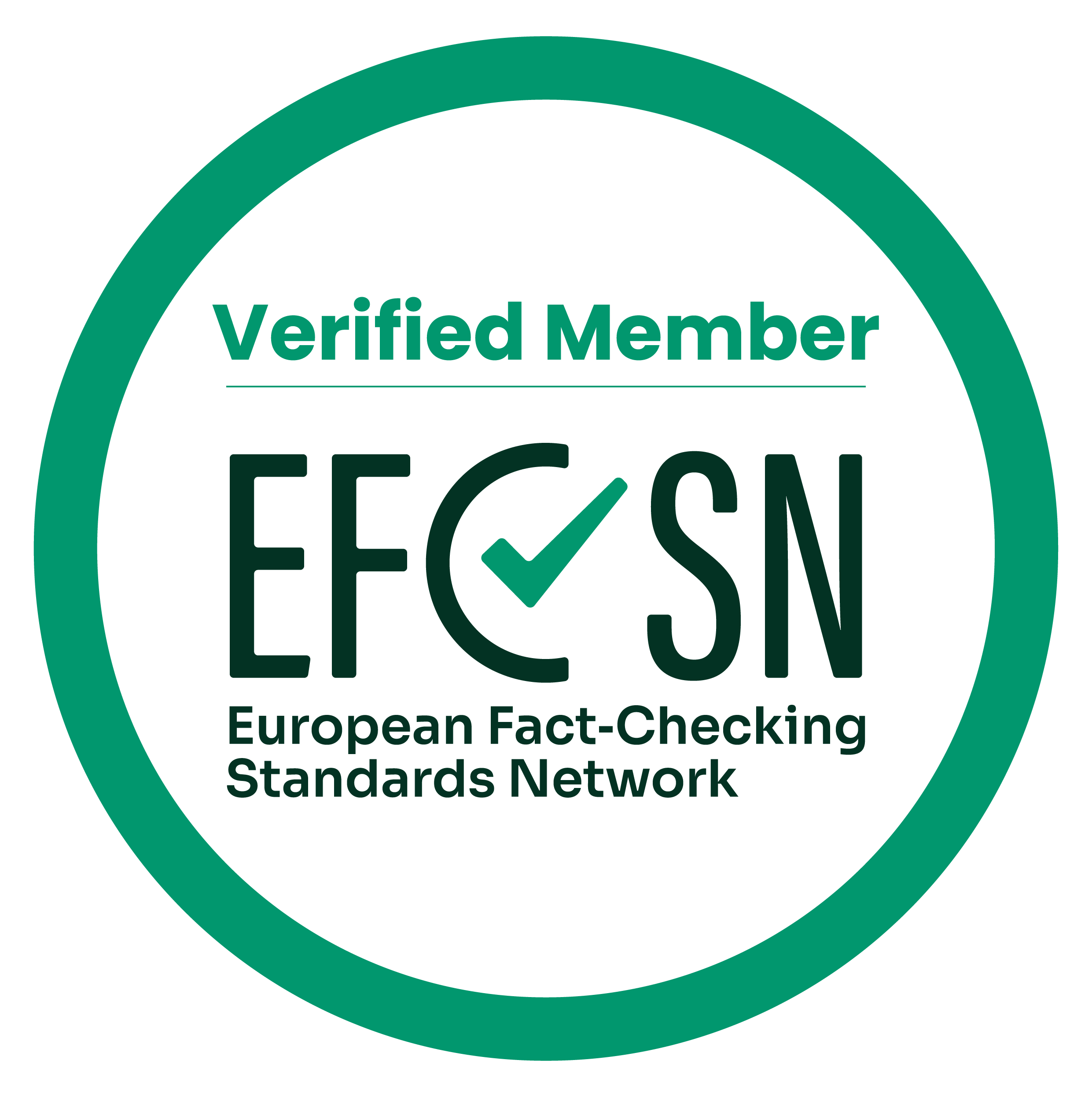Misleading, manipulative, or false information is being disseminated on social media in various ways claiming that the OSCE Parliamentary Assembly has used wording preferred by Russia regarding the Georgia-Russia conflict. In particular, the assembly mentions “Tbilisi-controlled Georgia”, and Abkhazia and “South Ossetia” as the parties of the conflict, while Russia is presented as a mediator to the conflict to some extent.
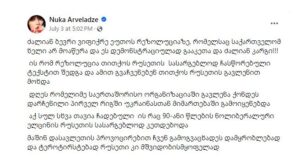
The text of the addendum submitted to the resolution of the 2024 Bucharest OSCE Parliamentary Assembly contained similar wording. However, the above-mentioned contradictory formulation was not included in the text of the finally approved resolution.
The text of the addendum submitted to the OSCE Parliamentary Assembly resolution reads as follows: [Resolution is] recalling the ongoing Russian occupation of the Georgian regions of Abkhazia and Tskhinvali/South Ossetia, which continues to violate Georgia’s independence, sovereignty, and territorial integrity within its internationally recognized borders, and reiterating that reconciliation between Tbilisi-controlled Georgia and occupied Abkhazia and South Ossetia remains a priority for regional peace and human security, but further noting that any arrangement brokered or supported by the Russian Federation would invite the implicit or explicit dominion of Moscow and inevitably undermine Georgian sovereignty and opportunities for reconciliation).
The mentioned record is truly vague and inconsistent, and part of it contains a formulation unacceptable to Georgia. In particular, the paragraph begins by emphasizing the Russian occupation and supporting the territorial integrity of Georgia within internationally recognized borders and then talks about the priority of reconciliation between “Tbilisi-controlled Georgia”, and “occupied Abkhazia and South Ossetia”, and then about the threat of a potential agreement reached or supported by Russia between the aforementioned parties. Even the first and second parts of the paragraph are inconsistent with each other. Moreover, the record of potentially reaching an agreement by Russia is blurry, especially given that no similar wording or content has been used in international organizations’ texts on Russian occupation so far.
On July 2, 2024, during his speech at the annual session of the OSCE Parliamentary Assembly in Bucharest, the chairman of the Foreign Relations Committee of the Georgian Parliament and the head of the Georgian delegation to the OSCE Parliamentary Assembly, Nikoloz Samkharadze, spoke about the amendments added regarding Georgia (see the original version of Nikoloz Samkharadze’s speech in English at the link (from 2:25:00)) and criticized the mentioned record as “exactly what Russia has been trying to present in the international negotiations in Geneva for the last 16 years – that Russia is not a party to the conflict.” According to him, the change also implies that Russia is trying to resolve the conflict through different channels, which is also disinformation and means “face-saving” of Russia’s destructive behavior in the Geneva format. All this is seriously disturbing considering that the OSCE is the co-chairman of the international negotiations in Geneva and the United States of America (whose representatives are the authors of this amendment) is a member of the Geneva format and a strategic partner of Georgia. Including the words in the resolution in such wording is against the territorial integrity of Georgia and the declared policy of the OSCE and the United States of America.
Including the words in the resolution with this formulation is against the territorial integrity of Georgia and the declared policy of the OSCE and the United States of America. U.S. representatives often state, and similar positions are recorded in U.S. and OSCE official documents, that they recognize the territorial integrity of Georgia and hold Russia responsible for the conflict. Among them, the above-mentioned resolution of the OSCE Parliamentary Assembly states: “[Resolution] reiterates its call for the immediate and unconditional withdrawal of Russian military forces from the occupied Georgian regions of Abkhazia and Tskhinvali/South Ossetia, in line with the European Union-mediated ceasefire agreement of 12 August 2008”.
“[Resolution] stresses the need to continue active engagement, in particular within the framework of the Geneva International Discussions, to achieve a peaceful resolution of the Russian Federation–Georgia conflict, in full respect of Georgia’s independence, sovereignty, and territorial integrity within its internationally recognized borders”.
“[Resolution] condemns the deterioration in the humanitarian and human rights situation in Georgia’s regions of Abkhazia and Tskhinvali/South Ossetia occupied by the Russian Federation, as a result of violations of fundamental freedoms and human rights of people living therein, various forms of discrimination against ethnic Georgians, as well as the alteration and obliteration of Georgian features from Georgian cultural heritage monuments in both regions, as a direct consequence of the Russian Federation’s ongoing occupation and “Russification” policy”.
Must be noted that the controversial record under consideration was not included in the final text of the OSCE parliamentary resolution. Nikoloz Samkharadze made a statement at the OSCE Parliamentary Assembly on July 2. During the voting at the July 3 session, Tina Bokuchava, representative of the United National Movement of Georgia, put forward a motion to remove the mentioned paragraph from the resolution and stated that the issue was agreed with the U.S. delegation (which was the author of the addition). The chairman of the relevant committee and at the same time the U.S. representative agreed that the removal of the recording was appropriate and correct. The Parliamentary Assembly voted to remove the paragraph from the text of the resolution, and ultimately, it was not included in the final text of the resolution.
Thus, even though a formulation unacceptable to Georgia indeed existed in one of the addendums to the OSCE parliamentary resolution, in the end, the Parliamentary Assembly supported its removal and it was no longer included in the text of the finally approved resolution. The adopted resolution contains notes acceptable to Georgia regarding the Georgia-Russia conflict and Russia’s occupation of Georgian territory, and it condemns the Russian occupation and the difficult situation created on the Georgian land as a result of the occupation and calls on Russia to withdraw its troops from the occupied regions of Georgia and to respect the territorial integrity and sovereignty of Georgia.
Therefore, the manipulative information and claims spread on social media, which present the situation as if there are formulations in the resolution of the Parliamentary Assembly approved by the OSCE regarding the Georgia-Russia conflict that is unacceptable for Georgia and desirable for Russia, do not correspond to reality, as long as the Parliamentary Assembly removed the mentioned record and replaced it with another record in accordance with the positions of Georgia regarding the given issue.

